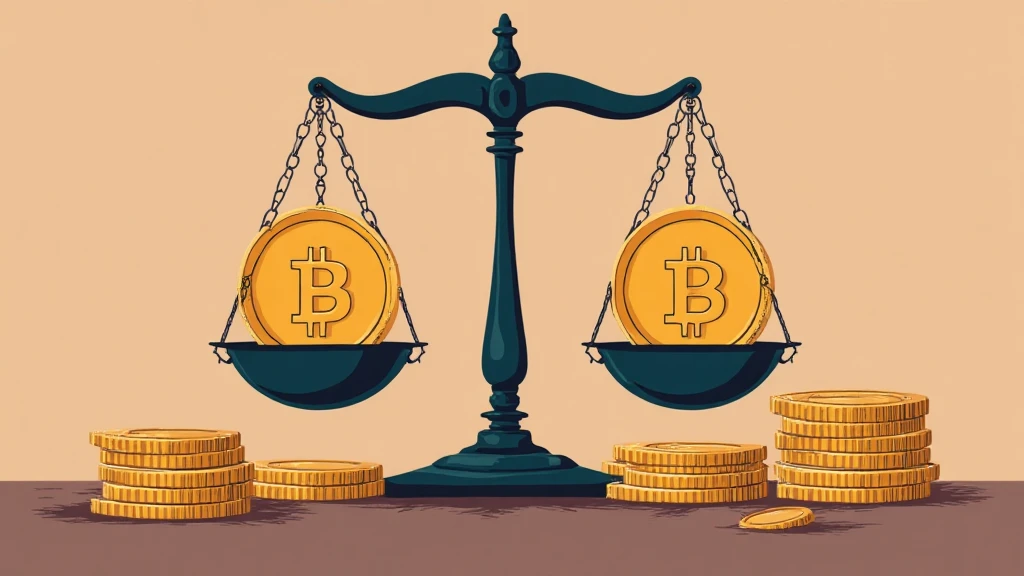Vietnam’s Cryptocurrency Tax Evasion Penalties: Understanding the Consequences
As the crypto market continues to grow, countries are adapting their regulatory frameworks to accommodate the increasing use of digital assets. In Vietnam, this adaptation includes stringent measures against tax evasion, particularly in the cryptocurrency sector. With a staggering $4.1 billion lost to DeFi hacks in 2024, one might wonder how governments are responding to protect their financial systems and ensure compliance among users. In this article, we’ll delve into the penalties for cryptocurrency tax evasion in Vietnam and what it means for traders and investors.
Understanding Tax Regulations in Vietnam
Vietnam has witnessed remarkable growth in cryptocurrency adoption, with a reported turnover of $25 billion in crypto transactions in 2023. As a result, the Vietnamese government is stepping up efforts to regulate this burgeoning market. The Ministry of Finance and the State Bank of Vietnam have been at the forefront of these regulatory efforts.
The primary legislation governing cryptocurrency in Vietnam includes the Law on Investment (2020) and the Law on Enterprises (2020). However, specific tax regulations related to cryptocurrency transactions are still a work in progress. Despite the challenges in establishing a concrete legal framework, the government has proposed tax guidelines that require cryptocurrency traders to report their earnings and pay taxes accordingly.

What Constitutes Tax Evasion in the Cryptocurrency Space?
Tax evasion occurs when taxpayers fail to report cryptocurrency income or deliberately misrepresent the amount earned. In Vietnam, cryptocurrency transactions can fall under several tax categories:
- Income Tax: Individuals and corporations are required to report any income derived from cryptocurrency trading as taxable income.
- Value Added Tax (VAT): Certain transactions, especially those involving the trading of cryptocurrencies for goods and services, may be subject to VAT.
- Capital Gains Tax: Investors are liable for taxes on any capital gains resulting from the sale of cryptocurrencies.
Failure to report these earnings can result in severe penalties. In Vietnam, tax authorities are employing advanced blockchain analytics tools to track cryptocurrency transactions, making it increasingly difficult for tax evaders to hide their activity.
Penalties for Cryptocurrency Tax Evasion in Vietnam
The Vietnamese government has established a framework to impose penalties for tax evasion related to cryptocurrencies. Here’s a breakdown of possible penalties:
- Fines: Tax evaders can face fines ranging from 1 to 3 times the unpaid tax amount. This measure severely impacts non-compliant traders, as the fines can accumulate quickly.
- Imprisonment: In extreme cases, individuals or corporate executives found guilty of significant tax evasion may face imprisonment of up to 5 years.
- Asset confiscation: Authorities may seize assets equivalent to the unpaid taxes, adding a financial burden on those caught evading.
These penalties underscore the importance of compliance for all crypto investors and traders operating within Vietnam.
The Importance of Compliance in the Crypto Space
For those involved in cryptocurrency trading, awareness and understanding of regulatory requirements are crucial. In Vietnam’s market, where a growing user base is evident—reported user growth rate of over 30% annually—ensuring compliance not only prevents harsh penalties but also promotes a healthy trading environment.
By adhering to tax regulations, crypto traders can contribute to the formal economy, gaining the trust of regulatory bodies and potentially benefiting from future legislative developments that support their investments.
Best Practices for Cryptocurrency Traders in Vietnam
Let’s break down some best practices for traders in Vietnam to mitigate the risks associated with tax evasion:
- Documentation: Maintain detailed records of all transactions, including dates, amounts, and trading platforms used. This data is crucial for accurate tax reporting.
- Regular Audits: Conduct periodic audits of your trading activities. You could use various tools to assess the profit and loss from your investments, ensuring accurate reporting.
- Professional Advice: Consider consulting a tax professional with experience in cryptocurrency to navigate local tax obligations effectively.
- Stay Informed: Keep up with regulatory changes and evolving guidelines within the cryptocurrency landscape to ensure ongoing compliance.
Following these best practices will empower traders to operate confidently, mitigating risks associated with tax evasion penalties.
The Future of Cryptocurrency Regulations in Vietnam
As Vietnam’s cryptocurrency market continues to evolve, so too will the regulatory landscape. The government is working on a comprehensive framework to ease the tax burden on compliant traders while imposing stricter penalties on evaders.
As this landscape develops, Vietnam aims to establish a balance between fostering innovation in the digital asset space and ensuring robust tax compliance. Reports indicate plans to review the current laws, possibly leading to a more structured approach to taxing cryptocurrencies.
As we look towards 2025, it’s essential for crypto enthusiasts to follow the unfolding regulations closely. Adapting to these changes can be the difference between operating a successful trading venture and facing severe tax evasion penalties. Let’s also keep in mind that while crypto offers vast potential, the importance of navigating this space ethically cannot be overstated.
Conclusion
In summary, understanding Vietnam’s cryptocurrency tax evasion penalties is paramount for anyone participating in this burgeoning market. The significance of compliance cannot be understated, as failure to adhere to tax regulations can result in serious financial and legal consequences.
Moreover, all traders must recognize the importance of proactive financial management, diligent record-keeping, and seeking professional guidance to avoid pitfalls. As the Vietnamese government works toward refining its regulatory framework, being informed and prepared will help traders navigate this dynamic landscape effectively.
Embrace the opportunities presented by our digital economy, but remember that compliance is key—avoid tax evasion penalties and cultivate a responsible trading environment in Vietnam’s crypto sector.
For more information on navigating the complexities of cryptocurrency and understanding local laws, visit hibt.com.




